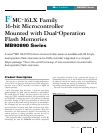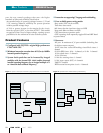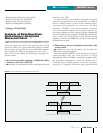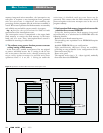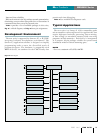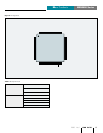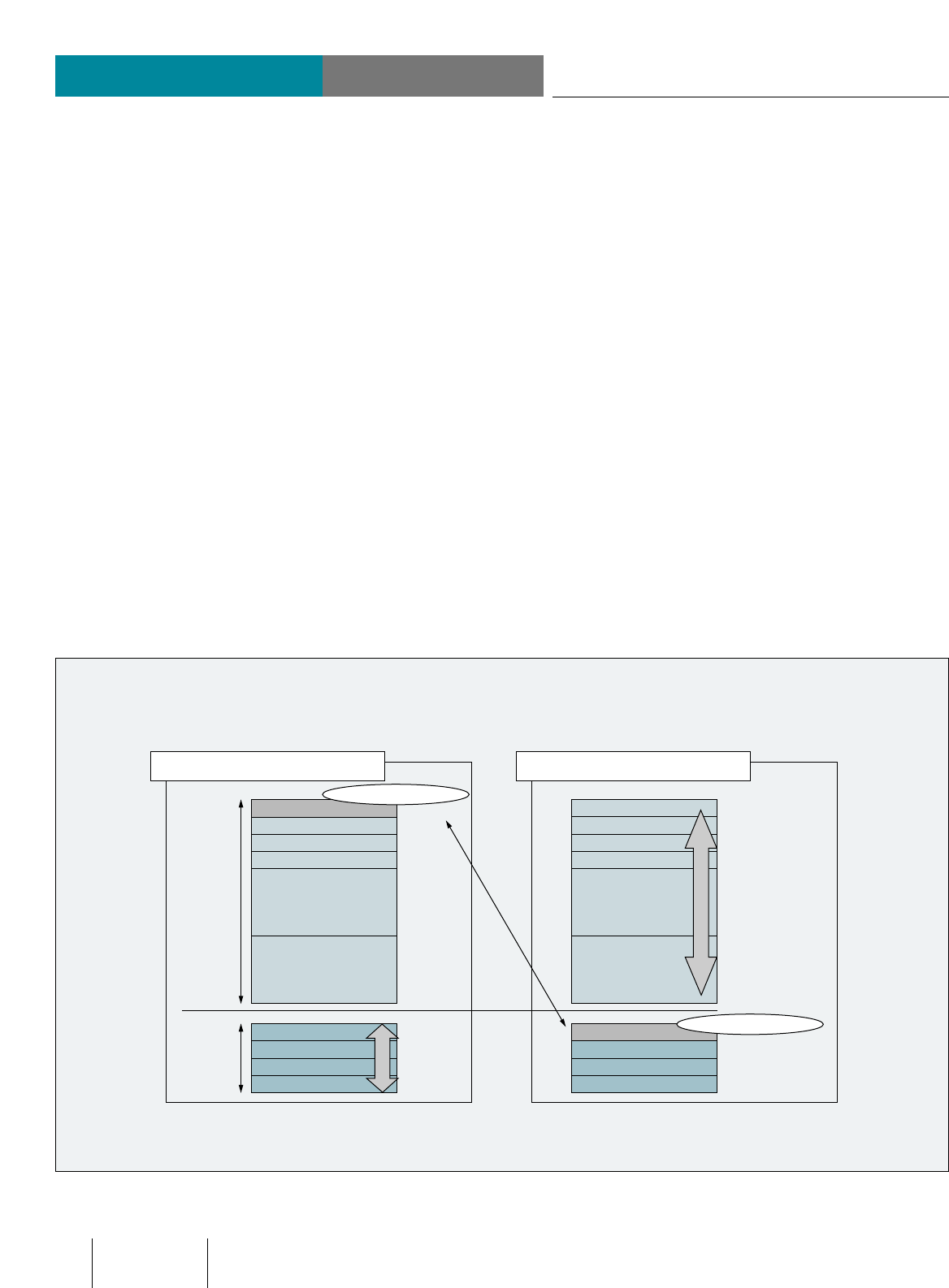
New Products
MB90890 Series
14
FIND Vol.21
No.1 2003
memory-integrated microcontrollers, the interruption can
take place in response to any interruption factor generated
after the write/erase is completed, thus enabling the
processing of other programs after the write/erase command is
issued. Write/erase operations for flash memories are smoothly
and reliably executed while system control is in progress.
Fig. 4 provides the specifications for bank-to-bank
transmission of the interruption vector.
The interruption vector is transmitted to the upper bank
flash memory to rewrite the flash memory in the lower
bank, and vice versa. Thus, interruption-based control is
available for rewriting in either bank.
■ The software sector-protect function prevents erroneous
writing /erasing of flash memory
In the new series, settable sector-protect bits are assigned
to protect individual sectors. An 0 setting in the bit sets
the sector-protect function active, thereby protecting the
target sector against attempts to perform write/erase
operations. Once 0 is set, the 1 setting (to enable the
write/erase) is disabled until any reset factor can be
generated. This ensures that the flash memories are fully
protected against write/erase attempts even in the case of
program runaway.
■ Dual-operation flash memory-integrated microcontroller
substitutes for an external EEPROM
Using the dual-operation flash memory-integrated
microcontroller as a substitution for EEPROM offers the
following benefits.
Reduced system board mounting area
The mounting area equivalent to an EEPROM footprint
is reduced.
Available EEPROM-like sector configuration
Eight small-density (4K-byte) sectors are available,
providing an easy-to-handle sector configuration for the
data-rewrite area (Fig. 4).
Faster write speed
The targeted write time is 32 s/byte (typical), markedly
faster than that with EEPROM.
Figure 4 Specifications for Bank-to-Bank Transmission of Interruption Vector



